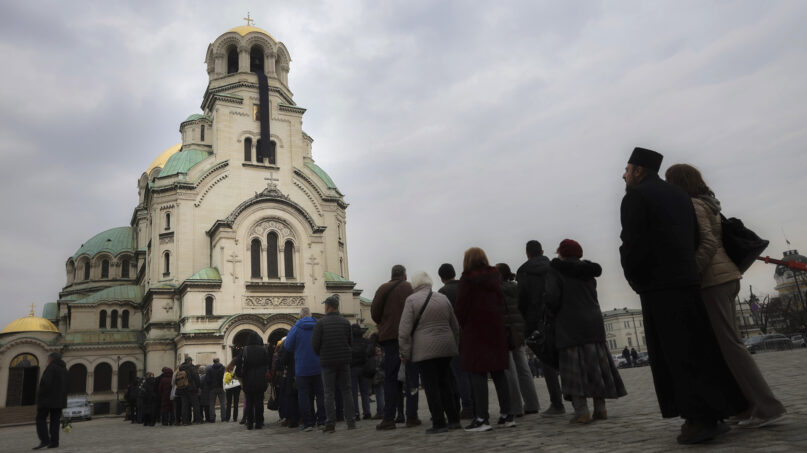SOFIA, Bulgaria (AP) — Thousands of Orthodox Christians from across Bulgaria flocked to Sofia’s main Alexander Nevski Cathedral on Friday to pay their respects to their late spiritual leader, Patriarch Neophyte, who died Wednesday at the age of 78.
Neophyte, who became patriarch in 2013, was the first head of the Bulgarian church to be chosen after the fall of Communism in 1989. He died in a hospital in Sofia after a long illness.
The government declared a two-day period of national mourning to honor Patriarch Neophyte’s memory.
Black-clad priests held a memorial service Friday as lines of worshippers passed by the open casket where Neophyte lay in state, dressed in a white robe and wearing a golden crown.
The coffin holding the patriarch’s body will be taken on Saturday in a funeral procession to St. Nedelya’s Church, where he will be buried.
Ecumenical Patriarch Bartholomew, the spiritual leader of the world’s Orthodox Christians, is expected to arrive for the funeral, as well as delegations from other Eastern Orthodox churches.
Orthodox Christianity is Bulgaria’s dominant religion, followed by some 85% of its 6.7 million people.
Bartholomew is considered first among equals among Eastern Orthodox patriarchs, which gives him prominence but not the power of a Catholic pope. Large portions of the Eastern Orthodox world are self-governing under their own patriarchs.
Neophyte succeeded Patriarch Maxim, who was at the helm of the church during the turbulent transition period from Communism to democracy.
Neophyte was widely acclaimed for his diplomatic skills in resolving internal conflicts among the senior clergy, as well as maintaining good relations with other churches and denominations. With the charisma of a modest and well-tempered leader, Neophyte won respect among the faithful.
He publicly welcomed Pope Francis during the pontiff’s visit to Sofia in 2019, a major gesture of reconciliation between the Orthodox and Roman Catholic churches but which was seen by other senior figures in the Bulgarian Church as “an attack on Orthodoxy.”
In a statement, the Bulgarian Catholic church praised Neophyte’s “sincere brotherly Christian love” for the Bulgarian Catholic community.
“The Muslim faith will remember him for his empathy and respect for the religious communities in the country,” said Mustafa Hadzhi, spiritual leader of the Muslim community in Bulgaria.
Relations with the larger Russian Orthodox Church deteriorated after Moscow’s invasion of Ukraine. Last year, a high-ranking Russian Orthodox priest in Bulgaria was expelled from the country on accusations of espionage, while earlier this year, Neophyte strongly condemned the role of the Russian church in the war in Ukraine.
“Our Lord, God, and the Holy Church bless only that army which does not demonstrate aggression and whose sole purpose is to protect and defend its people and country within internationally recognized territorial borders,” Neophyte said, referring to Moscow Patriarch Kirill’s blessings of Russian soldiers going to fight in Ukraine.





